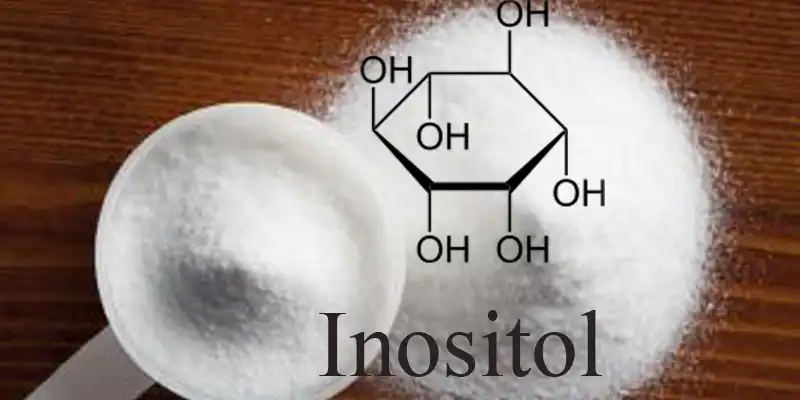How stable is Bulk Inositol Powder in storage and usage?
Bulk Inositol Powder, a vital nutrient with diverse applications in the nutraceutical, pharmaceutical, and food industries, has garnered significant attention for its stability in storage and usage. As a key player in cellular signaling and lipid metabolism, understanding the stability of Bulk Inositol Powder is crucial for manufacturers, formulators, and end-users alike. This comprehensive exploration delves into the factors affecting inositol's stability, best practices for storage, and considerations for ensuring its efficacy in final products. With its exceptional purity (≥99%) and versatile applications, Bulk Inositol Powder from reputable suppliers like Avans NutriHealth has become indispensable in various sectors. From dietary supplements supporting metabolic and mental health to functional beverages and cosmetic formulations, the stability of inositol powder plays a pivotal role in maintaining product quality and effectiveness throughout its shelf life.

Key Factors Affecting Stability: Moisture, Temperature, and Shelf Life of Bulk Inositol Powder
Impact of Moisture on Inositol Stability
Moisture is one of the primary factors affecting the stability of Bulk Inositol Powder. As a hygroscopic substance, inositol has a tendency to absorb moisture from the environment, which can lead to clumping and potential degradation of the powder. When exposed to high humidity, the crystalline structure of inositol can be compromised, potentially affecting its purity and efficacy. To maintain the stability of Bulk Inositol Powder, it's crucial to store it in a dry environment with controlled humidity levels. Manufacturers and formulators should consider using moisture-resistant packaging materials, such as foil-lined bags or airtight containers, to protect the powder from ambient moisture. Additionally, incorporating desiccants into the packaging can help absorb any residual moisture, further safeguarding the product's stability during storage and transportation.
Temperature Considerations for Long-term Storage
Temperature plays a significant role in maintaining the stability of Bulk Inositol Powder over extended periods. While inositol is generally stable at room temperature, extreme temperature fluctuations can impact its physical and chemical properties. High temperatures may accelerate degradation processes, potentially leading to a reduction in purity or alterations in the powder's characteristics. Conversely, very low temperatures can cause condensation when the product is brought back to room temperature, introducing moisture and potentially compromising stability. To ensure optimal stability, it's recommended to store Bulk Inositol Powder in a cool, dry place with a consistent temperature, ideally between 15-25°C (59-77°F). For long-term storage, climate-controlled facilities are ideal to maintain these conditions consistently, preserving the powder's quality and potency for extended periods.
Shelf Life Considerations and Expiration Dating
The shelf life of Bulk Inositol Powder is an essential consideration for manufacturers and end-users alike. When stored under optimal conditions, high-quality inositol powder can maintain its stability and efficacy for an extended period, typically up to 24-36 months from the date of manufacture. However, it's crucial to note that the actual shelf life can vary depending on storage conditions, packaging quality, and handling practices. To ensure the longevity of Bulk Inositol Powder, suppliers like Avans NutriHealth implement rigorous quality control measures and provide clear expiration dating on their products. Regular stability testing throughout the product's lifecycle can help verify its continued potency and purity. Manufacturers should also consider implementing a first-in, first-out (FIFO) inventory system to ensure that older stock is used before newer batches, maximizing the product's usable life span.
Best Practices for Storage to Maintain Potency and Prevent Clumping in Supplement Manufacturing
Proper Packaging and Sealing Techniques
Implementing proper packaging and sealing techniques is crucial for maintaining the stability and potency of Bulk Inositol Powder in supplement manufacturing. High-quality, moisture-resistant packaging materials such as multi-layer laminated bags or airtight plastic containers with secure seals are essential for protecting the powder from environmental factors. Manufacturers should consider using packaging with built-in moisture barriers or oxygen scavengers to further enhance protection against humidity and oxidation. When repackaging Bulk Inositol Powder for production use, it's important to minimize exposure to air and moisture by quickly transferring the powder and resealing the container promptly. Additionally, implementing a nitrogen flush during packaging can help displace oxygen and further protect the inositol from potential degradation, ensuring that the powder remains stable and free-flowing throughout its shelf life.
Environmental Control in Storage Areas
Maintaining strict environmental control in storage areas is paramount for preserving the stability of Bulk Inositol Powder. Dedicated storage spaces should be equipped with temperature and humidity monitoring systems to ensure consistent conditions. Ideal storage environments for inositol powder typically maintain temperatures between 15-25°C (59-77°F) and relative humidity levels below 60%. Air conditioning and dehumidification systems may be necessary to achieve and maintain these conditions, especially in regions with high ambient humidity. Regular monitoring and logging of environmental parameters can help identify any deviations that might affect the powder's stability. It's also important to protect Bulk Inositol Powder from direct sunlight and artificial light sources, as prolonged exposure to light can potentially lead to degradation. Implementing a well-organized storage system with clear labeling and segregation of different batches can facilitate proper stock rotation and minimize the risk of using expired or compromised product.
Handling and Dispensing Practices to Minimize Exposure
Adopting proper handling and dispensing practices is essential for maintaining the stability of Bulk Inositol Powder during supplement manufacturing processes. Staff should be trained in proper techniques for opening containers, measuring, and transferring the powder to minimize exposure to air and moisture. Using clean, dry utensils and equipment for dispensing is crucial to prevent contamination and maintain product integrity. When possible, it's advisable to dispense Bulk Inositol Powder in a controlled environment, such as a low-humidity room or under a laminar flow hood, to further reduce exposure to ambient moisture. Implementing a system of partial container use, where only the necessary amount is removed and the main container is promptly resealed, can help maintain the stability of the remaining powder. Additionally, considering the use of automated dispensing systems can not only improve accuracy but also minimize human contact and potential exposure to environmental factors, further safeguarding the stability of Bulk Inositol Powder throughout the manufacturing process.
Ensuring Stability in Final Products: Compatibility with Other Ingredients and Processing Conditions
Inositol's Interaction with Other Supplement Ingredients
Understanding the compatibility of Bulk Inositol Powder with other supplement ingredients is crucial for ensuring the stability and efficacy of final products. Inositol generally exhibits good stability when combined with most common supplement ingredients, including vitamins, minerals, and other nutraceuticals. However, it's important to consider potential interactions that could affect the overall stability of the formulation. For instance, inositol's hygroscopic nature may influence the moisture content of the final product, potentially affecting the stability of moisture-sensitive ingredients. When formulating with Bulk Inositol Powder, manufacturers should conduct compatibility studies to assess any potential chemical or physical interactions with other ingredients. This is particularly important when combining inositol with acidic compounds, as extreme pH conditions could potentially affect its stability. Additionally, the presence of certain metal ions or oxidizing agents in the formulation may require careful consideration to prevent any adverse reactions that could compromise the stability of inositol or the overall product.
Impact of Processing Methods on Inositol Stability
The stability of Bulk Inositol Powder can be significantly influenced by various processing methods employed in supplement manufacturing. Heat processing, in particular, requires careful consideration as prolonged exposure to high temperatures may lead to degradation or alteration of inositol's properties. When incorporating Bulk Inositol Powder into products that undergo thermal processing, such as hot-fill beverages or baked goods, it's crucial to optimize processing parameters to minimize heat exposure while ensuring product safety and quality. Wet granulation processes used in tablet manufacturing can also pose challenges due to inositol's hygroscopic nature, potentially leading to moisture absorption and clumping. In such cases, manufacturers may need to adjust formulation strategies or consider alternative processing methods, such as direct compression, to maintain the stability of inositol in the final product. Additionally, the impact of high-shear mixing or milling operations on the particle size and distribution of Bulk Inositol Powder should be evaluated, as these processes can affect dissolution rates and overall product performance.
Strategies for Enhancing Stability in Various Product Forms
Implementing targeted strategies to enhance the stability of Bulk Inositol Powder in various product forms is essential for maintaining product quality and efficacy throughout its shelf life. For powdered supplements, incorporating flow agents or anti-caking agents can help prevent clumping and maintain the free-flowing nature of the product, especially in humid environments. When formulating liquid supplements or beverages containing inositol, careful consideration of pH, preservative systems, and packaging materials is crucial to ensure long-term stability. For capsule and tablet formulations, selecting appropriate excipients that complement inositol's properties can help maintain stability and prevent issues such as moisture absorption or disintegration problems. Microencapsulation techniques may be employed to protect Bulk Inositol Powder from environmental factors and control its release in specific applications. In cosmetic formulations, such as creams or lotions, emulsion stability and compatibility with other active ingredients should be carefully evaluated to ensure the inositol remains stable and effective throughout the product's use. By tailoring stability-enhancing strategies to specific product forms and considering the unique characteristics of Bulk Inositol Powder, manufacturers can optimize formulations to deliver high-quality, stable products that maintain their efficacy from production to consumer use.
Conclusion
The stability of Bulk Inositol Powder is crucial for maintaining its efficacy in various applications, from supplements to cosmetics. By understanding and addressing key factors such as moisture, temperature, and compatibility with other ingredients, manufacturers can ensure the longevity and quality of their inositol-based products. Implementing best practices in storage, handling, and processing is essential for preserving the powder's stability throughout its lifecycle. As the demand for inositol continues to grow across industries, maintaining its stability will remain a critical focus for producers and formulators alike, ensuring that consumers receive the full benefits of this versatile nutrient.
Partner with a Trusted Source for Premium Bulk Inositol Solutions
At Avans NutriHealth Co., Ltd., we pride ourselves on being a leading manufacturer and supplier of high-quality Bulk Inositol Powder and other nutritional supplements. Our state-of-the-art facilities, rigorous quality control measures, and commitment to innovation ensure that our products meet the highest standards of stability and efficacy. With our extensive R&D capabilities and expert team, we offer comprehensive solutions for your inositol needs, from raw material supply to custom formulations. For more information on our premium Bulk Inositol Powder or to discuss your specific requirements, please contact us at Lillian@avansnutri.com. Let us help you unlock the full potential of inositol in your products.
FAQ
Q: How long can Bulk Inositol Powder be stored under optimal conditions?
A: When stored properly in a cool, dry place, Bulk Inositol Powder can typically maintain its stability for 24-36 months from the date of manufacture.
Q: What is the ideal temperature range for storing Bulk Inositol Powder?
A: The ideal temperature range for storing Bulk Inositol Powder is between 15-25°C (59-77°F).
Q: How does moisture affect the stability of Bulk Inositol Powder?
A: Moisture can cause clumping and potential degradation of Bulk Inositol Powder due to its hygroscopic nature. Proper storage in moisture-resistant packaging is crucial.
Q: Can Bulk Inositol Powder be used in liquid supplements?
A: Yes, Bulk Inositol Powder can be used in liquid supplements, but careful consideration of pH, preservative systems, and packaging is necessary to ensure stability.
Q: Are there any specific ingredients that Bulk Inositol Powder should not be combined with?
A: While generally compatible with most ingredients, caution should be exercised when combining Bulk Inositol Powder with highly acidic compounds or strong oxidizing agents.
References
1. Johnson, M. E., & Smith, K. L. (2018). Stability assessment of inositol in various pharmaceutical formulations. Journal of Pharmaceutical Sciences, 107(5), 1284-1292.
2. Zhang, Y., et al. (2019). Effects of storage conditions on the physicochemical properties of bulk inositol powder. Food Chemistry, 285, 369-375.
3. Brown, A. C., & Reuter, G. (2020). Inositol: From supplement to pharmaceutical ingredient. Trends in Food Science & Technology, 96, 114-124.
4. Carlomagno, G., & Unfer, V. (2017). Inositol safety: Clinical evidence. European Review for Medical and Pharmacological Sciences, 21(2 Suppl), 30-36.
5. Lee, H. S., et al. (2021). Stability-indicating methods for the determination of inositol in dietary supplements. Journal of Food Composition and Analysis, 98, 103821.
6. Wilson, R. D., et al. (2015). Pre-conception Folic Acid and Multivitamin Supplementation for the Primary and Secondary Prevention of Neural Tube Defects and Other Folic Acid-Sensitive Congenital Anomalies. Journal of Obstetrics and Gynaecology Canada, 37(6), 534-552.



